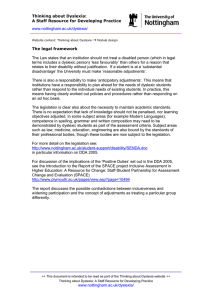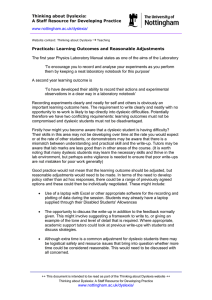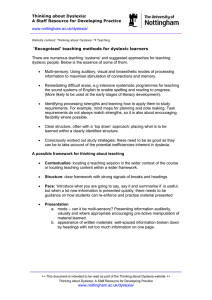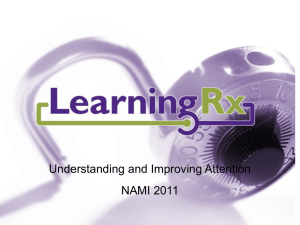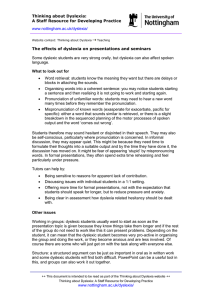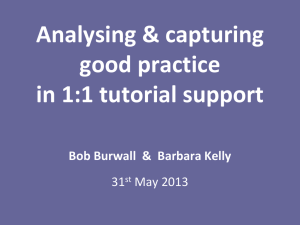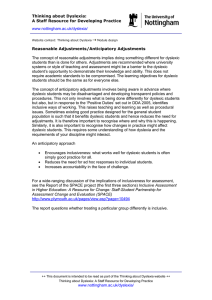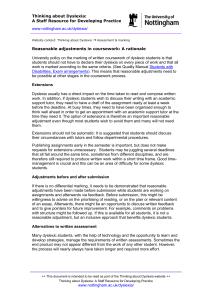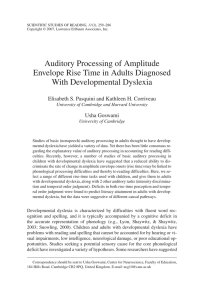Thinking about Dyslexia: A Staff Resource for Developing Practice
advertisement
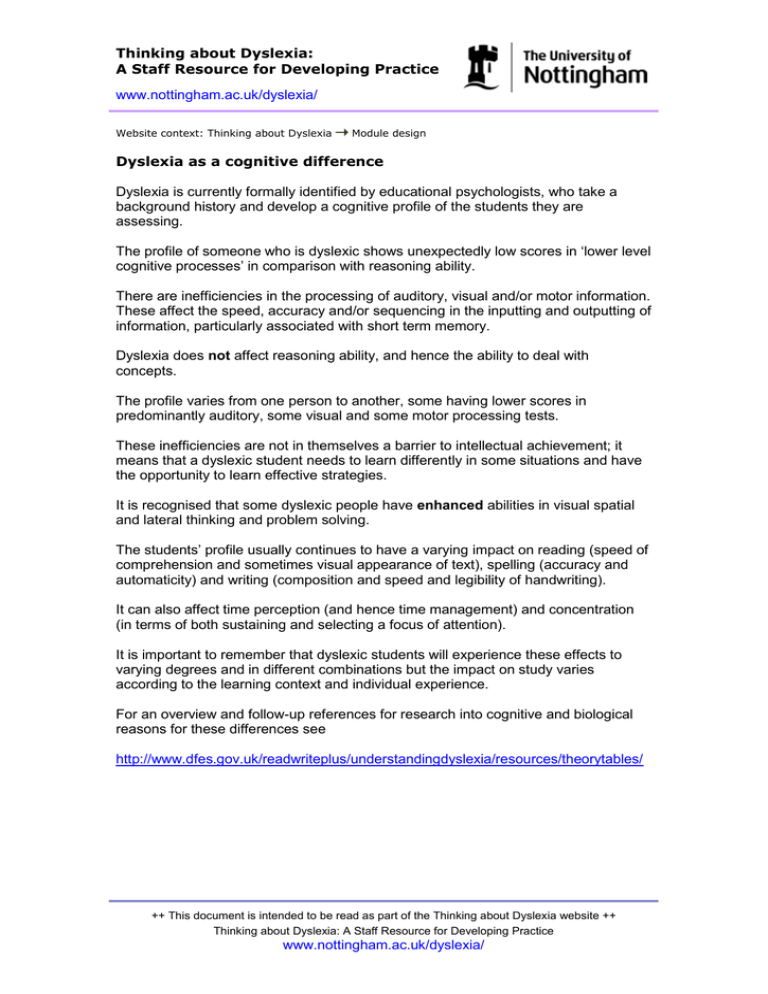
Thinking about Dyslexia: A Staff Resource for Developing Practice www.nottingham.ac.uk/dyslexia/ Website context: Thinking about Dyslexia Module design Dyslexia as a cognitive difference Dyslexia is currently formally identified by educational psychologists, who take a background history and develop a cognitive profile of the students they are assessing. The profile of someone who is dyslexic shows unexpectedly low scores in ‘lower level cognitive processes’ in comparison with reasoning ability. There are inefficiencies in the processing of auditory, visual and/or motor information. These affect the speed, accuracy and/or sequencing in the inputting and outputting of information, particularly associated with short term memory. Dyslexia does not affect reasoning ability, and hence the ability to deal with concepts. The profile varies from one person to another, some having lower scores in predominantly auditory, some visual and some motor processing tests. These inefficiencies are not in themselves a barrier to intellectual achievement; it means that a dyslexic student needs to learn differently in some situations and have the opportunity to learn effective strategies. It is recognised that some dyslexic people have enhanced abilities in visual spatial and lateral thinking and problem solving. The students’ profile usually continues to have a varying impact on reading (speed of comprehension and sometimes visual appearance of text), spelling (accuracy and automaticity) and writing (composition and speed and legibility of handwriting). It can also affect time perception (and hence time management) and concentration (in terms of both sustaining and selecting a focus of attention). It is important to remember that dyslexic students will experience these effects to varying degrees and in different combinations but the impact on study varies according to the learning context and individual experience. For an overview and follow-up references for research into cognitive and biological reasons for these differences see http://www.dfes.gov.uk/readwriteplus/understandingdyslexia/resources/theorytables/ ++ This document is intended to be read as part of the Thinking about Dyslexia website ++ Thinking about Dyslexia: A Staff Resource for Developing Practice www.nottingham.ac.uk/dyslexia/
